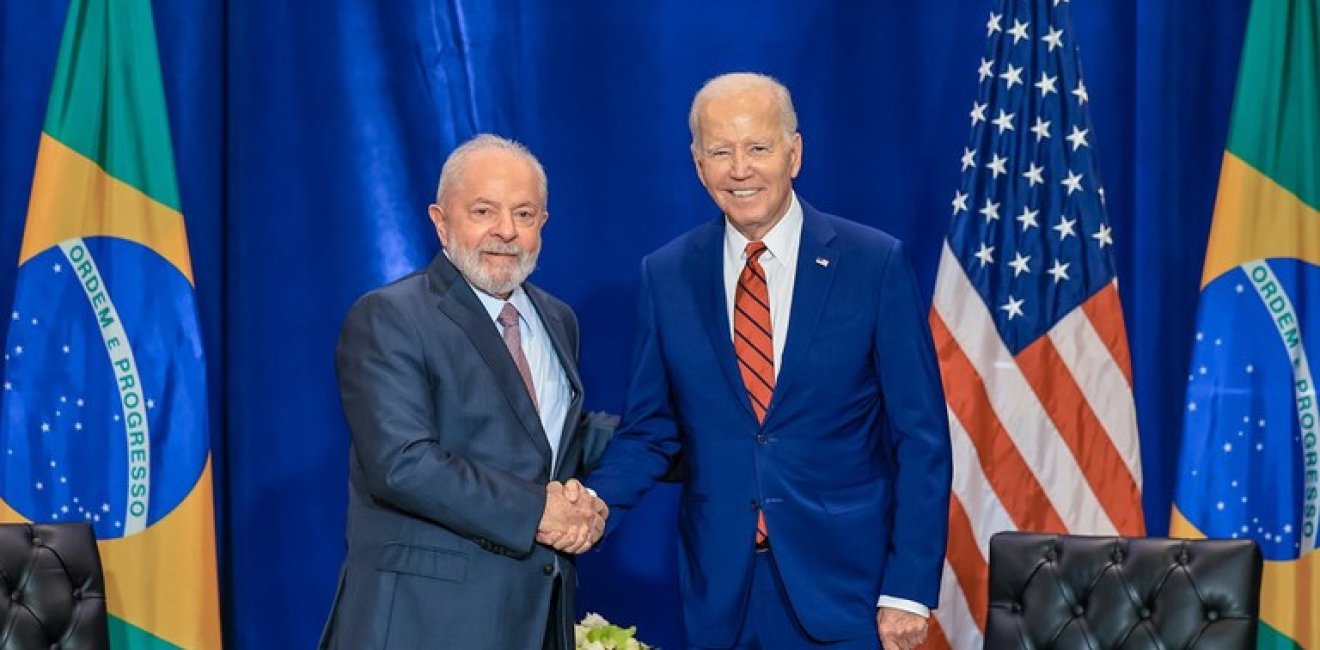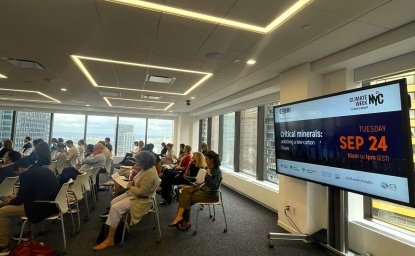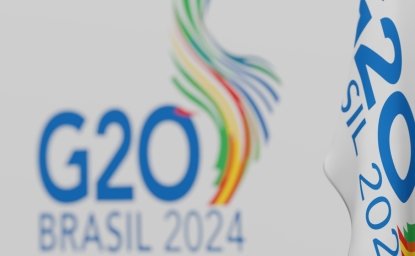
A blog of the Brazil Institute

The unfolding narrative of Brazil's return to the global stage under President Lula does read like a novel, suitably titled "Brazil is Back" – a motto Lula has championed since his inauguration speech. The story started with great promise following Lula's reelection but was soon tested by diplomatic challenges that cast a shadow onto this narrative. A significant one was Lula's declaration stating that Volodymyr Zelensky and Vladimir Putin share equal responsibility for the war in Ukraine. Although he tempered this declaration later on, it still generated distrust in Western capitals.
Lula and Brazil's delegation left New York last week leaving behind a positive impression. He illuminated Brazil's foreign policy direction by addressing the United Nations General Assembly (UNGA) and participating in bilateral dialogues, particularly when contrasted with the Bolsonaro era's distance from international forums. It served as a more transparent moment, offering the international community a clearer understanding of Lula's diplomatic stance and Brazil's envisioned role. Brazil's commitment to strategic autonomy has been a prominent pillar of its foreign policy. Under Lula's guidance, Brazil demonstrates to be reading into an uncertain global order, wary of becoming entangled in conflicts between global powerhouses. Set against the backdrop of what Brazil calls a multi-polar world, Lula's tactful approach reaffirmed his dedication to upholding Brazil's independent stance.
His discussions with U.S. President Joe Biden touched upon shared global concerns like environmental conservation, transitioning to a green economy, and safeguarding workers' rights. The Partnership for Worker's Rights, a joint initiative between Brazil and the U.S., further symbolizes their commitment to these issues. Cooperation will happen while maintaining open communication channels and collaboration with other global powers that antagonize and dispute power with the U.S. Clearly, Brazil and the United States made an effort in this visit to adapt and advance the relationship. It encourages those who believe that to advance the bilateral relationship, the two countries must go beyond geopolitics and look into the many aspects of both societies that relate to each other. Indeed, the two countries see the evolving international order differently, especially around China's role. But there are other forces allowing cooperation despite the differences. Lula's speech at UNGA offered subtle criticisms of U.S. policy, particularly concerning the Cuban embargo and the treatment of Julian Assange. The good news is that he tactfully avoided contentious topics like the governance of Nicolás Maduro and the Russian-Ukraine situation.
In essence, Lula's address at UNGA and his meetings with leaders such as U.S. President Joe Biden and Ukrainian President Volodymyr Zelensky highlighted Brazil's global stance. President Lula emphasized Brazil's unity in private sector meetings by bringing on his mission critical figures like Rodrigo Pacheco, President of the Senate, and Arthur Lira, President of the Chamber of Deputies. This united front, featuring ministers and congressional leaders, conveyed a strong message of institutional stability to potential investors. Although Lula's narrative sometimes strayed from presenting Brazil as a consistent ally of the U.S., the overarching theme underscored mutual respect and agreements on pivotal subjects, including environmental sustainability, workers' rights, and democratic governance. The U.S. has received Lula's message: while the two nations may be friends, they are not perpetual allies.
A standout moment saw Lula and Biden, two democratic stalwarts, highlighting their mutual respect and shared vision for championing democracy. Last week reminded me and made me reflect on the wise words of Ambassador Sergio Amaral, a distinguished diplomat who served in Washington from 2016 to 2019: "When in agreement, we should cooperate; and when differing, it's essential to voice it and seek negotiation."
Author

Explore More in Brazil Builds
Browse Brazil Builds
Critical Minerals: Unlocking a Low-carbon Future


